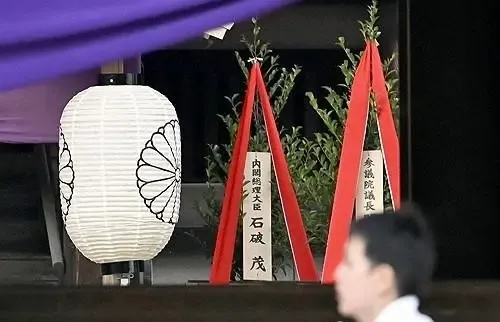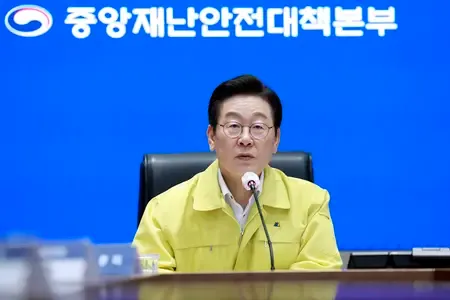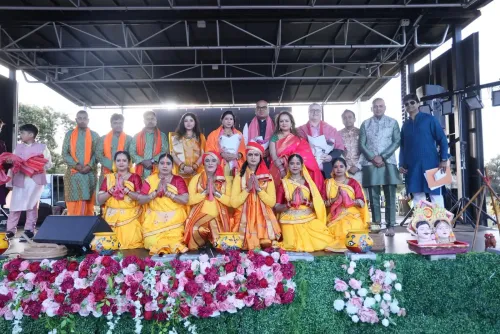Is North Korea Right to Criticize Japan PM's Shrine Offering?

Synopsis
Key Takeaways
- North Korea condemns Japan’s Prime Minister for shrine offering.
- The Yasukuni Shrine honors war dead, including war criminals.
- Critics say such actions symbolize Japan's militarization.
- Historical grievances fuel tensions in the region.
- Regional neighbors are concerned about potential militaristic revival.
Seoul, April 27 (NationPress) North Korea has condemned Japanese Prime Minister Shigeru Ishiba for performing a ritual offering at a contentious war shrine in Tokyo, asserting that it once more illustrates Japan's ambition towards militarization.
The North's Korean Central News Agency (KCNA) released this criticism in a commentary on Saturday, following Ishiba's offering last week to the Yasukuni Shrine, which commemorates Japanese war casualties, including 14 Class A war criminals convicted by the Allied forces post-World War II.
A bipartisan assembly of Japanese legislators also visited the shrine during this period to pay their respects.
The KCNA condemned these actions by Japanese officials as “the road to militarization,” warning that such steps would only hasten the downfall of Japan.
The KCNA accused Japanese politicians of normalizing their yearly offerings and visits to Yasukuni, labeling these acts as an effort to “deeply entrench the poison of militarism” throughout the archipelago, with the shrine as its core.
Furthermore, it claimed that Japan is nearing the final phase of legal, institutional, and military preparations for a continental invasion, referencing the recent establishment of the Self-Defense Forces (SDF) Joint Operation Command and constitutional amendments, as reported by Yonhap news agency.
“Japan's revisionism, which has systematically advanced its political and military rearmament for decades since its defeat, is transitioning into reality, not merely expectation,” the KCNA stated.
Visits to the shrine and offerings have sparked criticism from neighboring countries like South Korea and China, which perceive these actions as efforts to glorify Japan's militaristic history.
During World War II, Japan invaded China, and Korea was under Japanese colonial rule from 1910-45.









